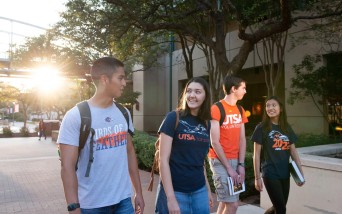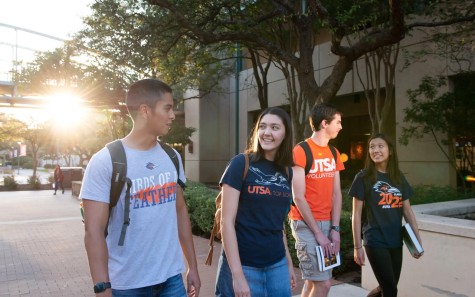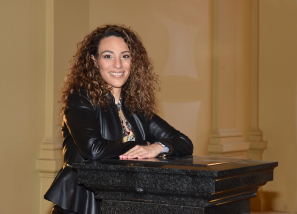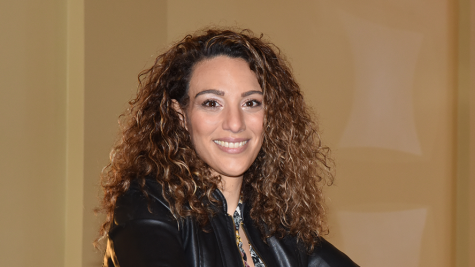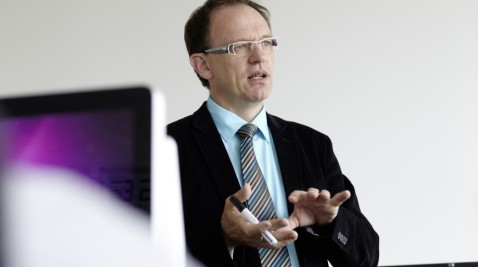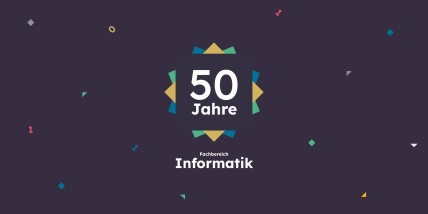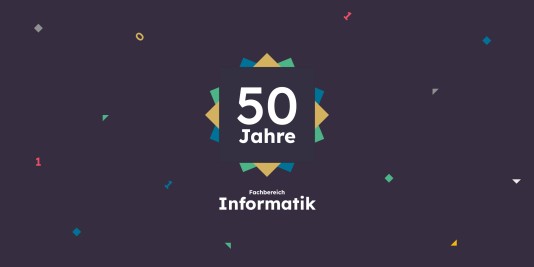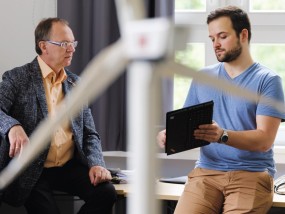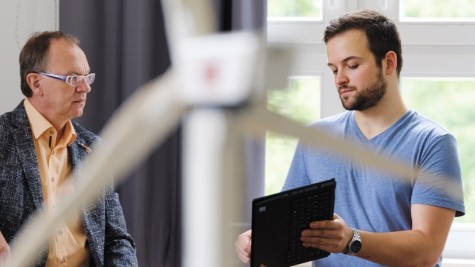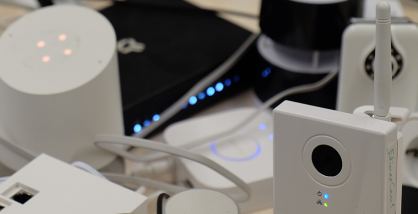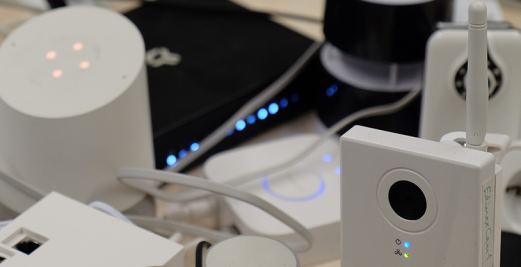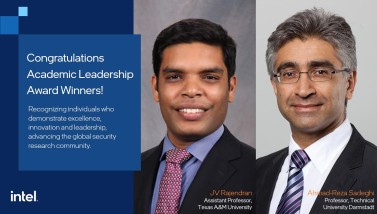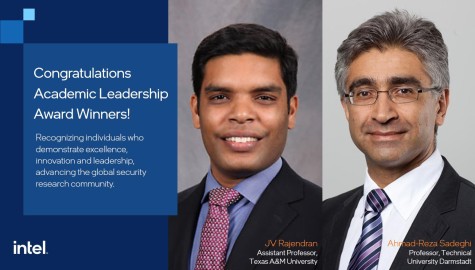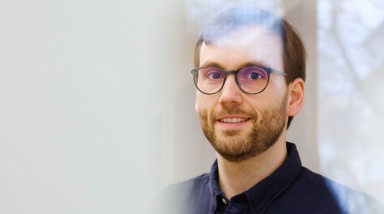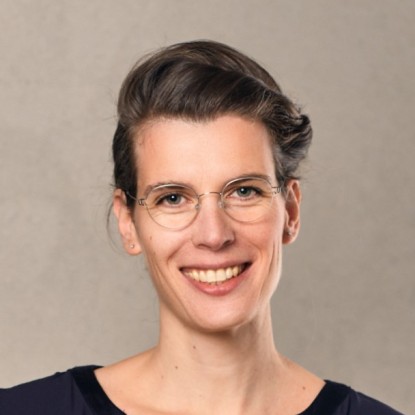-
![]() Picture: University of Texas at San Antonio
Picture: University of Texas at San Antonio![]() Picture: University of Texas at San Antonio
Picture: University of Texas at San AntonioCall: Research visit at the University of Texas
2022/02/28
Doctorate students in cybersecurity can apply for a scholarship
University of Texas in San Antonio (UTSA), as a partner university of TU Darmstadt, currently has an open call for a full-time research exchange scholarship to fund PhD students in cybersecurity from TU Darmstadt for a 3-months visit starting in late August 2022.
-
![]()
![]()
Unite! Summer School on Human-Centered Machine Learning
2022/02/15
August 8-19, 2022 at Aalto University, Finland
3 ECTS. School participation is free of charge for B.Sc. students from Unite! universities. Application period March 1 – May 15, 2022!
-
![Chalvatzaki _Georgia]() Picture: Claus Völcker
Picture: Claus Völcker![Chalvatzaki _Georgia]() Picture: Claus Völcker
Picture: Claus VölckerProfessur für Dr. Georgia Chalvatzaki
2022/02/02
Making robots useful parts of our society
Since February, Georgia Chalvatzaki has been assistant professor for “Intelligent Robotic Systems for Assistance” at the Department of Computer Science. Chalvatzaki has been leading the iROSA research group since 2021 as part of the Emmy Noether Programme of the German Research Foundation. Previously, the 33-year-old researcher was a postdoctoral researcher in the Department of Intelligent Autonomous Systems in the Department of Computer Science. We asked Professor Chalvatzaki about her work:
-
![]() Picture: Patrick Bal | TU Darmstadt
Picture: Patrick Bal | TU Darmstadt![]() Picture: Patrick Bal | TU Darmstadt
Picture: Patrick Bal | TU DarmstadtNew at the department: Mariami Gachechiladze
2022/02/01
Understanding our nature and the capabilities of our world through quantum technologies
Since February 1, Mariami Gachechiladze has been an assistant professor in the Department of Computer Science, heading the quantum computing group. We asked the 30-year-old scientist about her work.
-
![]()
![]()
Professor Mühlhäuser named as ACM Distinguished Member
2021/12/21
Recognition for outstanding scientific contributions to computing
Prof. Max Mühlhäuser, Professor of Computer Science and head of the Telecooperation Lab, was named a 2021 Distinguished Member of the Association for Computing Machinery (ACM). The ACM named 63 Distinguished Members in 2021 for outstanding contributions to the field of computing. All distinguished members are longstanding ACM members and were selected by their peers for a range of accomplishments that advance computing as a science and a profession.
-
![Professorin Angela Yu]()
![Professorin Angela Yu]()
Angela Yu selected to receive Humboldt Professorship
2021/11/25
Recognition and strenghtening of the twin disciplines of Cognitive Science and AI
Endowed with a Humboldt Professorship, Angela Yu is invited to assume a bridging function between artificial intelligence and the neurosciences. Yu is currently conducting negotiations with TU Darmstadt.
-
![]()
![]()
Save the Date for our 50th Anniversary
2021/11/11
We're looking for your favourite CS department memories.
The Department of Computer Science was found on May 15th, 1972. We want to celebrate our 50th anniversary on May 12th, 2022, and through several smaller highlights across the coming year. Whether you are (or were) a student, staff or alumni – we look forward to hear your stories, see pictures and learn more about your favorite moments from the past 50 years.
-
![Das neue Graduiertenkolleg „LokoAssist“ will bislang ungenutzte Potentiale von Assistenzsystemen ausschöpfen. Im Bild: GRK-Sprecher Professor André Seyfarth (l.) bei der Anpassung eines Soft-Suit-Exoskelett-Prototyps.]() Bild: Katrin Binner
Bild: Katrin Binner![Das neue Graduiertenkolleg „LokoAssist“ will bislang ungenutzte Potentiale von Assistenzsystemen ausschöpfen. Im Bild: GRK-Sprecher Professor André Seyfarth (l.) bei der Anpassung eines Soft-Suit-Exoskelett-Prototyps.]() Bild: Katrin Binner
Bild: Katrin BinnerForschung für körperlich gehandicapte Menschen
2021/11/08
Neues Graduiertenkolleg an der TU Darmstadt
Die Deutsche Forschungsgemeinschaft (DFG) hat das neue Graduiertenkolleg „LokoAssist – Nahtlose Integration von Assistenzsystemen für die natürliche Fortbewegung des Menschen“ an der TU Darmstadt bewilligt. Beteiligt sind die Universität Heidelberg und das Zentralinstitut für Seelische Gesundheit in Mannheim. Das Kolleg wird ab 2022 für viereinhalb Jahre mit voraussichtlich rund 6 Millionen Euro gefördert. Am Graduiertenkolleg sind auch Prof. Jan Peters, Ph.D. sowie Prof. Dr. Oskar von Stryk vom Fachbereich Informatik beteiligt.
-
![]() Picture: Richard Mitev
Picture: Richard Mitev![]() Picture: Richard Mitev
Picture: Richard MitevFake-waking voice assistants – how Alexa and Co. listen in without being noticed
2021/09/24
Research on the “fake wake phenomenon” for better privacy protection
Researchers from the System Security Lab at the Department of Computer Science, together with a team from China's Zhejiang University in Hangzhou, have studied the “fake wake phenomenon” in voice assistants. The findings can be used to train the voice-controlled devices so that they are less susceptible to unintentional activation.
-
![Im Hintergrund unterhalten sich Prof. Max Mühlhäuser und Doktorand Rolf Egert. Im Vordergrund ein unscharfes Windrad.]() Picture: Katrin Binner
Picture: Katrin Binner![Im Hintergrund unterhalten sich Prof. Max Mühlhäuser und Doktorand Rolf Egert. Im Vordergrund ein unscharfes Windrad.]() Picture: Katrin Binner
Picture: Katrin BinnerThe electricity supply needs actively engaged customers
2021/09/21
Reasearch at Telecooperation Lab
Could we as consumers actually make the future electricity grid more stable? A research team headed by Rolf Egert and Max Mühlhäuser is working on exactly this kind of vision.
-
![]() Picture: System Security Lab
Picture: System Security Lab![]() Picture: System Security Lab
Picture: System Security LabNovel security for the Internet of Things
2021/09/16
Transfer project of the System Security Lab receives funding from the Pioneer Fund
The project “DÏoT – Autonomous and Distributed Intrusion Detection for IoT Networks” at the System Security Lab of Professor Ahmad-Reza Sadeghi will be supported by the university's internal funding program Pioneer Fund starting January 2022.
-
![]() Picture: Intel Corporation
Picture: Intel Corporation![]() Picture: Intel Corporation
Picture: Intel CorporationIntel Academic Leadership Award for Prof. Ahmad-Reza Sadeghi
2021/08/13
Recognition for organizing the world's largest hardware security competition "HACK@Event
Cybersecurity researcher Professor Ahmad-Reza Sadeghi, head of the System Security Lab in the Department of Computer Science, was awarded the Intel Academic Leadership Award along with Professor Jeyavijayan Rajendran (Texas A&M). The award was presented at the internationally renowned USENIX Security Symposium 2021.
-
![Ein Laptop mit einer Kartensoftware steht auf dem Tisch, davor hält eine Hand ein Smartphone. Bild: emergenCITY]() Picture: emergenCity
Picture: emergenCity![Ein Laptop mit einer Kartensoftware steht auf dem Tisch, davor hält eine Hand ein Smartphone. Bild: emergenCITY]() Picture: emergenCity
Picture: emergenCityTracking lost keys or stolen bikes made easy
2021/08/05
Framework “OpenHaystack” enables tracking of personal Bluetooth devices
Researchers from the Department of Computer Science provide an open-source framework for locating personal Bluetooth devices via Apple's offline finding system “Find My”. A corresponding scientific demo paper was awarded the Best Demo Award at the ACM conference WiSec'21 in July 2021.
-
![Christian Jason]() Picture: Katrin Binner
Picture: Katrin Binner![Christian Jason]() Picture: Katrin Binner
Picture: Katrin BinnerEnsuring nobody else can read your messages
2021/04/30
“Athene Young Investigator” Christian Janson is carrying out research into the secure exchange of encrypted messages
Privacy and data protection are becoming more and more important in our increasingly digital everyday and working lives. The cryptographer Christian Janson is carrying out research into secure communication. The newly appointed “Athene Young Investigator” is working on, amongst other things, encryption methods that remain secure even against increasingly powerful attackers.
-
![]() Picture: Ann-Kathrin Braun
Picture: Ann-Kathrin Braun![]() Picture: Ann-Kathrin Braun
Picture: Ann-Kathrin BraunApple AirDrop shares more than files
2021/04/21
TU-Researchers discover significant privacy leak in Apple's file-sharing service
Apple users can share files with each other using AirDrop. But studies by TU researchers at the Department of Computer Science show that uninvited people can also tap into data. The research team developed a solution that could replace the flawed AirDrop. Apple has not yet closed the discovered privacy gap – the users of more than 1.5 billion Apple devices are still vulnerable.
Computer Science
News
Archive

